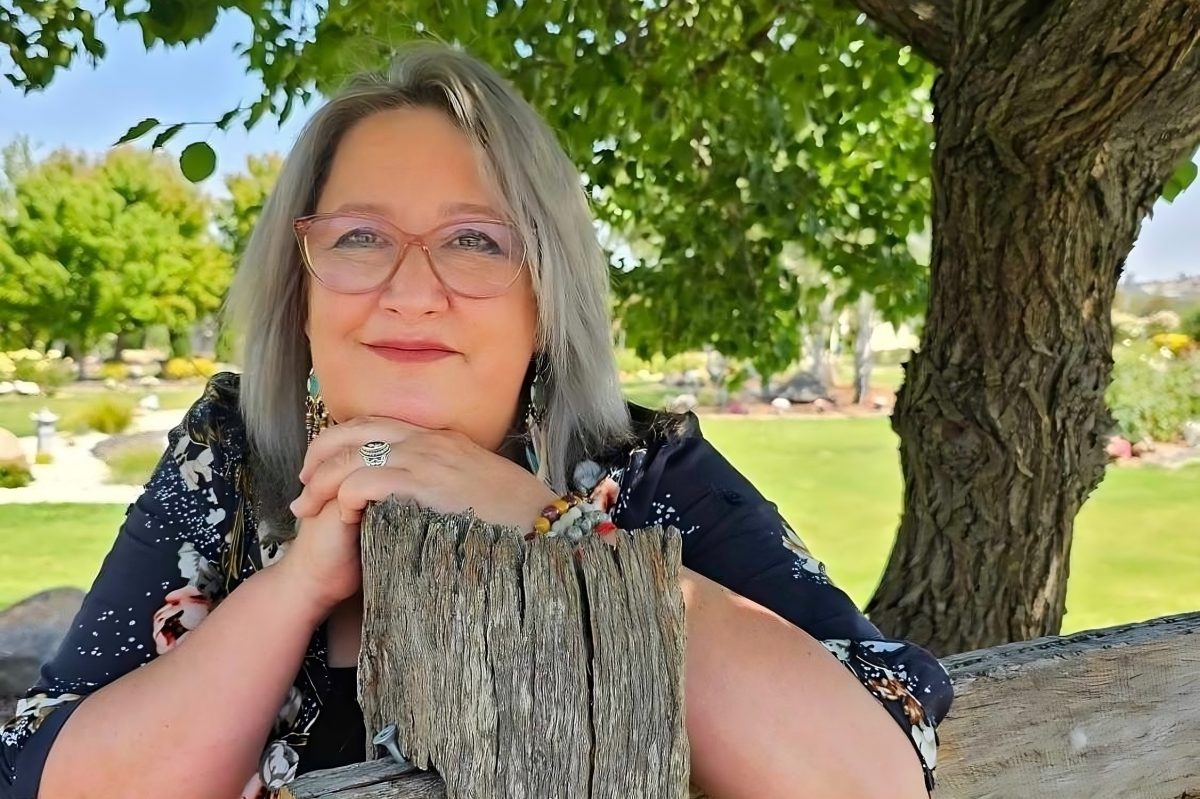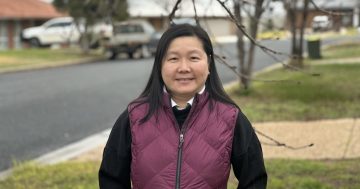
Jocelyn Mason has seen many changes in the funeral industry since 1987. Photo: Supplied.
Jocelyn Mason was “a baby” when she first stepped into a funeral home in 1987, and has seen the industry undergo many changes.
“It’s ever-evolving, even from 1987 to 2010,” she said.
“Just with technology, it’s so different and people can attend funerals now with live streaming.
“I’m sure there’ll be even more things that come up as we go ahead.”
Ms Mason believes working as a funeral director has taken away her fear of death.
“As a kid, I was terrified of death, absolutely terrified of it,” she said.
“My grandmother got killed in a car accident, and that sort of made my brain go to all sorts of places.”
A couple of years after that, the owners of a funeral home in Morgan Street asked whether she wanted to work for them. The funeral home no longer exists, but Ms Mason has been a funeral director ever since.
“I remember one of the first things I did,” she said.
“When they laid the bodies out for a viewing for the family, I made myself go in there and do bookwork to get used to seeing a dead body, because I was so scared of it.”
The 58-year-old said funerals in Wagga were much simpler when she started out 38 years ago.
“Back in the day, you either went to a church or had a graveside service,” she said.
“Or maybe you would use the cremation service at the chapel and then go to the church, then you would go to the cemetery.
“Now, hardly anybody uses the church. They’ll either use the funeral home or the crematorium chapel, or they’ll just have a graveside [service].
“In the ’90s, we started having booklets and slideshows.”
People were also choosing to have a funeral celebrant lead the proceedings, rather than a religious minister.
“There’s funeral celebrants who aren’t religious,” Ms Mason said.
“Just even the coffins. Whereas before you had your standard coloured ones, now you can have ones with photo wraps, made of wicker, just all sorts of different things.
“People are having them at different venues, like at the Botanic Gardens. We held a funeral one time at Main Street, just blocked off the whole street.”
Funeral homes used to be able to hold three funerals a day. With all these changes, Ms Mason said the homes had to reduce their services.
“It’s become more like an event, rather than just celebrating when someone’s born, gets married or turns a special age,” she said.
“Which is nice, because it is a life event for people.”
Ms Mason said she saw a shift in the industry during the COVID-19 pandemic.
In addition to funeral livestreams gaining popularity, she also noticed an uptick in cremations without a funeral.
“I would say to people, ‘Please, you need to do something. Have a dinner and talk about the person’,” she said.
“You can’t be born and live on this Earth and then just disappear.
“Sometimes they have a private family burial before the funeral, then a memorial service afterwards, which kind of takes the elephant out of the room and makes the services a little bit lighter.”
Ms Mason said the funeral process differed depending on the state or territory.
“In NSW, the cemeteries will only deal with a funeral practice,” she said.
“You have to hold an account with the council as a funeral director and have public indemnity insurance to be able to go into the cemetery and bury someone, whereas in Victoria, anybody can do it.”
Ms Mason is passionate about death education, and started her journey as an end-of-life doula last year.
“I know here in Wagga, funeral homes don’t like to work with [end of life] doulas. They don’t understand what the role of a doula is,” she said.
“Most of the time, it was more so you’re helping people.”
She believes there should be more conversations about death.
“My dad thinks if he talks about it, he’ll catch it,” she said.
“You’re not going to die just because you talk about death!
“The whole thing is a process. I think it doesn’t matter what culture you’re from, whether you’re Muslim or Hindu or whatever.
“There is a rite of passage those of us who are left crying need to move through.”








